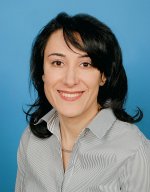 Lia Abbasi Moheb Lia Abbasi Moheb
Berlin, Germany
Talk: C15.2 Mutations in the NSUN2 and ZNF526 genes cause autosomal recessive intellectual disability in Middle Eastern populations with elevated frequency
Session: C15 Intellectual Disability
Date: May 31, 11.00 hrs Date and city of birth
22.09.1973-Kermanshah
What is your current position?
PhD student in Molecular Human Genetics in Max Planck Institute for Molecular Genetics, Berlin, Germany..
Why did you choose a career in genetics?
Since it is a fascinating subject of life.
What do you really like about the research you are presenting?
I am interested in exploring how genes relate to human intelligence. Investigation of these genes can answer the question why we are smart, which is one of the main questions in science and public. Interestingly I have studied the two genes which can be one of the most frequent causes of intellectual disabilty, hence in my opinion they are the best candidates for following up different aspects in human intelligence evolution, ID treatment and prevention.
What is your ultimate goal in life?
Being a good human and scientist in order to make life better. | | 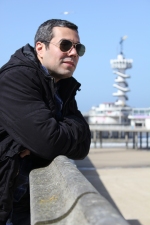 Rodrigo Almeida Rodrigo Almeida
Brasilia, Brazil
Talk: C10.2 Fine mapping of the celiac disease locus on 3q27-q28 harboring the LPP gene
Session: C10 Complex Disease Genetics
Date: May 30, 13.15 hrs Date and city of birth
09 November, 1980. Bom Jesus da Lapa, Bahia, Brazil
What is your current position?
Currently I'm a guest PhD student at Department of Genetics, UMCG, University of Groningen, The Netherlands and also I'm a PhD student at the University of Brasilia School of Health Sciences,Brazil.
Why did you choose a career in genetics?
I think genetics is the most exciting field in biology with a plenty of possibilities to do research, especially in human genetics, which has new discoveries every day.
What do you really like about the research you are presenting?
I like the possibility to compare different populations using news approaches to try to find out, why a variant in a specific region has so strong association with a disease.
What is your ultimate goal in life?
Happiness and success in both, professional and personal life. |
| | | |
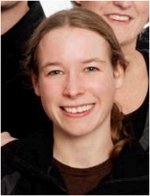 Heleen Arts Heleen Arts
Nijmegen, Netherlands
Talk: C11.5 Sensenbrenner syndrome is caused by dysfunctional IFT-A mediated retrograde transport in the cilium
Session: C11 Centrosomal and Ciliary Defects
Date: May 30, 13.15 hrs Date and city of birth
28-09-1981
What is your current position?
Postdoc
Why did you choose a career in genetics?
Although genetics appears to be more complicated than I thought at the time, as a university student I was amazed by the idea that single changes in the billions of base pairs of our genome could lead to disease. Another aspect of genetic research that is meaningful to me is the clinic; the importance of my work for our society, for families and patients.
What do you really like about the research you are presenting?
My research fits with the idea that there are functional modules in our genome and that mutations in different elements of these modules can give rise to overlapping phenotypes. Biology is not always complicated.
What is your ultimate goal in life?
I don't think I have any 'ultimate goals' other than be happy in life. Do what you wish to do, and go where you want to be.
| | 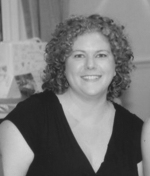 Louise Bicknell Louise Bicknell
Edinburgh, United Kingdom
Talk: C03.1 Mutations in multiple components of the pre-replication complex cause microcephalic primordial dwarfism and Meier-Gorlin syndrome
Session: C03 Skeletal and Multisystem Disorders
Date: May 29, 13.15 hrs Date and city of birth
Napier, New Zealand. 1982
What is your current position?
Post-doctoral fellow in the lab of Dr Andrew Jackson, MRC Human Genetics Unit, Edinburgh, UK. I focus on the molecular genetics of primordial dwarfism, both identifying novel disease genes and characterising phenotypes associated with mutations in established genes.
Why did you choose a career in genetics?
I think genetics chose me! I have always been fascinated and excited by the potential of studying human disorders in revealing the underlying genetics in the development of humans, and other organisms. I am honoured to be able to have a personal connection with our patients and to be able to address the seemingly unanswerable question for some families - what is the genetic cause of their's child syndrome?
What do you really like about the research you are presenting?
The power of genetics! The research I am presenting demonstrates the simple elegance that human disease genetics can be - the ability to gain unexpected insight into a cellular pathway simply by identifying mutations in the encoding genes.
What is your ultimate goal in life?
Professionally, to be able to have a long, successful career in human genetics. Personally, to enjoy life and for my family and friends to stay safe and well. |
| | | |
 Paul Brady Paul Brady
Leuven, Belgium
Talk: C07.4 The Use Of Array CGH for Prenatal Diagnosis Of Fetuses With Congenital Malformations Detected By Ultrasound
Session: C07 Prenatal Diagnosis and Reproduction
Date: May 30, 13.15 hrs Date and city of birth
31 January 1975. Bristol, UK
What is your current position?
I am a 2nd year PhD student of Professor Joris Vermeesch, Molecular Cytogenetics & Genome Research laboratory at the Centre for Human Genetics of K.U. Leuven, Belgium.
Why did you choose a career in genetics?
I find genetics to be a fascinating subject and an exciting field to be working in. I started my profession in a diagnostic lab in Bristol, UK, and then moved to Leuven to undertake applied research applying new techniques for prenatal diagnosis, with a focus on the underlying genetic causes of congenital diaphragmatic hernia.
What do you really like about the research you are presenting?
Arrays are revealing causal submicroscopic CNVs which escape detection by conventional karyotyping in the prenatal setting. We expect this technique will continue to reveal submicroscopic loci and genes associated with congenital malformations, improving our understanding of normal and abnormal foetal development, and revealing future therapeutic targets. The use of array CGH for prenatal diagnosis is developing fast and raising many ethical questions on how to implement prenatal arrays, and for whom.
What is your ultimate goal in life?
Professionally - to successfully defend my PhD and to continue an exciting career in human genetics. Personally - For me and those I love to be happy. | | 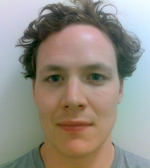 George Busby George Busby
Oxford, United Kingdom
Talk: C06.6 Microsatellite choice and Y chromosome variation: attempting to select the best STRs to date human Y chromosome lineages
Session: C06 Evolutionary and Population Genetics
Date: May 29, 13.15 hrs Date and city of birth
08/04/1982, Reading, UK
What is your current position?
DPhil Student, Department of Zoology, University of Oxford.
Why did you choose a career in genetics?
Anyone who has thought about evolution will have pondered the greatest questions of them all: why and how are we here? As I grew up and began to appreciate that all life holds within it a code with the potential to answer these questions, I knew that there would be no other career as fascinating, illuminating ultimately rewarding as one involving genetics.
What do you really like about the research you are presenting?
I really like that the work that I am presenting is building on theoretical work first published on over 15 years ago that was based mainly on simluations. With the recent availability of the large HGDP Y chromosome STR dataset ,we can now empircally address these theories and perhaps shed some light on why previous Y chromosome dating approaches have been unsatisfactory.
What is your ultimate goal in life?
Genetic science, and in particularly human genomics, is becoming increasingly relevant to the wider public. As young genetics researcher, I believe that I have a responsibility to educate and discuss how genetics can be used to help all of us in the future. It is therefore my aim to continue to work within the field of human genomics in the future, and, more specifically, to be involved in the wider discussion as to how we can harness the inherent power of genetics for the greater good of us all. |
| | | |
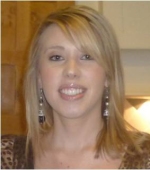 Jillian Casey Jillian Casey
Dublin, Ireland
Talk: C17.2 First implication of STRA6 mutations in isolated anophthalmia, microphthalmia and coloboma
Session: C17 Molecular Basics of Genetic Diseases
Date: May 31, 11.00 hrs Date and city of birth
28/04/1985, Cork, Ireland
What is your current position?
PhD student at the School of Medicine and Medical Sciences, University College Dublin, Ireland.
Why did you choose a career in genetics?
I was always attracted to a career in the field of healthcare, in particular paediatrics. Following a work placement in a local hospital I noticed a recurring theme; many patients could not be specifically treated because the cause of their disorder was not known. That is when I decided to specialise in human genetics with a desire to improve our understanding of the basis of genetic disorders. Genetics is a worthwhile, challenging and rewarding field that translates directly into clinical care of individuals with genetic disorders.
What do you really like about the research you are presenting?
The study is an interesting example of how technological advancement was crucial to isolation of the underlying disease gene. The study, which involved a family with autosomal recessive colobomatous micro-anophthalmia (arCMIC) of unknown cause, commenced 10 years ago. At the time, linkage analysis and mutation screening in a set of candidate genes failed to provide a diagnosis. Ten years later, advances in SNP arrays and next-generating sequencing technology led to rapid identification of the causative gene. I also had the opportunity to witness the translational aspect of genetic research as our findings allowed us to make a positive genetic diagnosis for other families. Furthermore, we had the opportunity to look at the underlying biology of the condition by undertaking cellular work and developing an animal disease model. Given the longevity of this study, it was immensely rewarding to be able to finally provide an answer for the families that have spent years seeking explanations for their child's disorder.
What is your ultimate goal in life?
I think Robert Collier said it best with “The first essential, of course, is to know what you want.” From a professional point of view, the goal is to make a long-lasting contribution to the field of medical genetics. In particular, I intend to contribute to the progression of genetics from diagnostics, to treatment and ultimately to prevention of serious genetic conditions. I understand that the road to that goal may be long and difficult but the challenge and potential benefits are strong motivators. | | Gabrielle Christenhusz
Leuven, Belgium Talk: C14.1 Cutting edge technology and old-fashioned relationships: ethical reflections on incidental findings arising from whole genome and exome sequencing
Session: C14 Genetic Counselling, Education and Public Policy
Date: May 31, 11.00 hrs |
| | | |
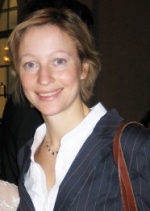 Johanna Dahlqvist Johanna Dahlqvist
Uppsala, Sweden
Talk: C17.6 siRNA silencing of proteasome maturation protein (POMP) expression activates the unfolded protein response and constitutes a model for KLICK syndrome
Session: C17 Molecular Basics of Genetic Diseases
Date: May 31, 11.00 hrs Date and city of birth
Feb 12, 1979; Umeå, Sweden
What is your current position?
PhD student in genetics.
Why did you choose a career in genetics?
It is a vast and expanding field where progress is made every day to elucidate the very basic components of all organisms.
What do you really like about the research you are presenting?
It is an interesting work that leads to unexpected discoveries and constantly challenges you to think in new directions.
What is your ultimate goal in life?
To challenge myself and to follow my instincts. | | Sebastian Eck
Munich, Germany Talk: C05.3 Anaylsis of 150 exomes using an automated analysis pipeline
Session: C05 Statistical Genetics & Large Scale Analysis
Date: May 29, 13.15 hrs |
| | | |
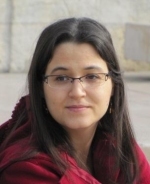 Salima El Chehadeh-Djebbar Salima El Chehadeh-Djebbar
Dijon, France
Talk: C13.5 The power of high resolution non-targeted array-CGH in identifying intragenic rearrangements responsible for Cohen syndrome
Session: C13 Molecular Cytogenetics
Date: May 31, 11.00 hrs Date and city of birth
02/10/1980 Suresnes, France
What is your current position?
I am a Medical Doctor (Paediatrician) working for the present year in the laboratory of Cytogenetics in Dijon University Hospital preparing an European Master 2 of Genetics (Paris 5 and Paris 7 Universities). I have the objective of specializing in clinical genetics and of working in the Department of Genetics of Dijon University Hospital.
Why did you choose a career in genetics?
My interest for genetics began during my medical studies in Infant Hospital of Dijon where I met a lot of children for which geneticists made a diagnosis of rare condition and permitted to improve their prognosis and life quality by optimizing their specific follow-up. Furthermore, genetics is a medical speciality that associates clinical practice to research that is a very attractive specificity for me. it is for these reasons that I chose a career in genetics.
What do you really like about the research you are presenting?
I am working on Cohen syndrome, that was the topic of the memory regarding my training in clinical genetics, since two years and I found very interesting to go into the knowledge in depth and improve our comprehension of this condition, since our genetic department became a referent centre for the disease.
What is your ultimate goal in life?
To succeed in specializing in genetics: continuing to follow children identifying rare diseases, combined sometimes with fundamental research, and teaching clinical genetics at the Dijon University hospital. | | 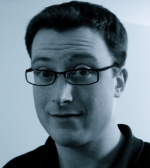 Benjamin Fairfax Benjamin Fairfax
Oxford, United Kingdom
Talk: C16.2 Interrogation of high purity primary cell subsets demonstrates the majority of eQTLs operate in a cellular discrete manner
Session: C16 Genomic Applications
Date: May 31, 11.00 hrs Date and city of birth
2nd September 1978, London, UK
What is your current position?
I am a Wellcome Trust MB PhD postdoctoral fellow within Julian Knight's group in Oxford. In tandem I am just completing Core Medical Training as an ACF in Medical Oncology.
Why did you choose a career in genetics?
Genetics has held a lifelong fascination for me- it underpins not only who we are and where we came from, but often what we die of! It can be argued that no other remit of medical sciences has the potential to uncover the mechanisms of disease in such an unbiased manner as genetics. Moreover, I believe that over the forthcoming years genetics will fundamentally revolutionise the therapeutic approach to disease, especially in the field of Oncology.
What do you really like about the research you are presenting?
I am excited about this research because it sheds identity onto the potential mechanisms of multiple GWAS disease associated traits in physiologically relevant tissue. Moreover, this work shows that by focussing upon primary homogenous cell populations many eQTLs are identifiable that are otherwise not observed when looking at heterogenous tissues and in doing so greatly increases the number of known eQTLs.
What is your ultimate goal in life?
I would like to be able to feel I have contributed something to our understanding of immunogenetics and disease susceptibility. I would also like to hope that I will be able to use genetics in the clinical context to help tailor patient care. |
| | | |
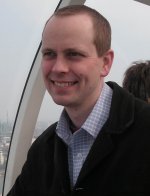 Dominic Furniss Dominic Furniss
Oxford, United Kingdom
Talk: C10.1 Genomewide association study identifies nine novel susceptibility loci for Dupuytren's disease, and suggests a major role for WNT signalling
Session: C10 Complex Disease Genetics
Date: May 30, 13.15 hrs Date and city of birth
1974, Sheffield, UK
What is your current position?
Clinical Lecturer in Plastic Surgery, Nuffield Department of Surgical Sciences, University of Oxford, UK
Why did you choose a career in genetics?
The genetic code contained on our chromosomes is the textbook of life. Understanding the language of the book is fundamental to understanding both normal human anatomy, physiology and development, and also the pathophysiology of disease. What do you really like about the research you are presenting?
This work is the first to thoroughly investigate the fundamental genetic basis of Dupuytren's Disease - a very common but relatively neglected condition. It is the result of an exciting collaboration between researchers and surgeons across Europe, and opens up the field to rationally designed future research to help improve the treatment of my patients.
What is your ultimate goal in life?
To retain my curiosity, and to walk the long and winding road that is genetic research, making discoveries along the way which will help my patients, and may shed light on fundamental processes of human physiology.
| | 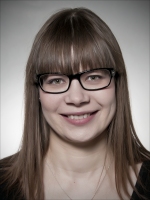 Christina Halgren Christina Halgren
Copenhagen, Denmark
Talk: PL2.1 De novo balanced chromosomal rearrangements have high risk of neurodevelopmental and psychiatric disorders.
Session: PL2 What's new?
Date: May 28, 18.30 hrs Date and city of birth
1978; Sorø, Denmark
What is your current position?
PhD-student at Wilhelm Johannsen Centre for Functional Genome Research, University of Copenhagen,Denmark
Why did you choose a career in genetics?
During medical school, I worked as a research assistant at the Wilhelm Johannsen Centre. Here I was introduced to the fascinating world of medical genetics and I realized that genetics play an important role in all medical specialties. As a medical doctor, I am particularly fascinated by the fact that genetics in one way or the other is the underlying cause of most (if not all) disease. What do you really like about the research you are presenting?
The backbone of this research project was to establish and collect an unselected, nation-wide cohort of prenatally detected carriers of de novo balanced chromosomal rearrangements. We were able to collect this unique cohort since all Danish chromosome analyses are registered in the Danish Cytogenetic Research Register and the project involved both a clinical and a molecular characterization of the cohort members. Working with these families gave me an exceptional insight into the counseling dilemma that arises with the finding of a de novo apparently balanced structural rearrangement. The prenatal counseling is very difficult in these cases, since it is almost impossible to give a proper risk assessment. I hope that our results will have clinical applications and can be helpful to clinical geneticists in future counseling of these families.
What is your ultimate goal in life?
To continue my clinical and scientific training so I can combine research and clinical work - and always work for the best interests of my patients.
|
| | | |
Charlotte Henrichsen
Lausanne, Switzerland Talk: C13.1 Copy Number Variants in a Large Pedigree of Inbred Mice
Session: C13 Molecular Cytogenetics
Date: May 31, 11.00 hrs | | 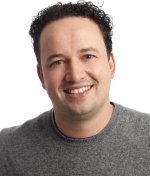 Alexander Hoischen Alexander Hoischen
Nijmegen, Netherlands
Talk: C03.6 De novo nonsense mutations of ASXL1 cause Bohring-Opitz (Oberklaid-Danks) syndrome
Session: C03 Skeletal and Multisystem Disorders
Date: May 29, 13.15 hrs Date and city of birth
11th July 1977, Hamm, Germany
What is your current position?
I am currently a research postdoc in the Genomic Disorders Group in the Department of Human Genetics Radboud University Medical Center Nijmegen, The Netherlands.
Why did you choose a career in genetics?
A research career in this field combines the possibility to do what you're curious about and do that in a network of creative people. It offers great freedom and the chance to discover something new. What do you really like about the research you are presenting?
The combination of basic research with high clinical impact is of course very attractive. To know that you do work for patients, e.g. in deciphering the genetic causes of a disease, gives you certainly high motivation. On top, the fast evolving technologies offer possibilities to answer questions researches haven't been able to answer for years.
What is your ultimate goal in life?
To be surrounded by family and friends when aged at least 90 and look back on a full filled life (which always combines private and professional life), without regretting too much. |
| | | |
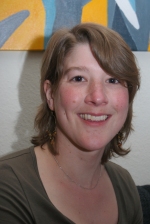 Nicole Janssen Nicole Janssen
Groningen, Netherlands
Talk: C09.3 A guideline for CHD7 analysis
Session: C09 Clinical genetics and Dysmorphology II
Date: May 30, 13.15 hrs Date and city of birth
27 April 1984, Zwolle, The Netherlands
What is your current position?
I am currently a PhD student and medical doctor working in the Department of Genetics at the University Medical Center Groningen, The Netherlands
Why did you choose a career in genetics?
Unlike most other medical doctors, I was already interested in the clinical genetics before I started medical school, because I liked the combination of basic research and clinical practice. During my studies this interest grew, because clinical genetics is a broad specialism, in which psychology, statistics, ethics and several medical specialties meet. It is a rapidly expanding field and a specialism in which you are often challenged to solve complex puzzles. In addition, it is a specialism in which communication is important, and I find it challenging to discuss the complex issues we encounter during counseling in an understandable way with patients. What do you really like about the research you are presenting?
CHARGE syndrome is a challenging syndrome with a variable phenotype; patients with CHARGE syndrome and their families are intriguing, not only by their medical problems, but also by their personality, perseverance and adaptability. The research I present shows the impact of a genetic diagnosis on the phenotype of a syndrome. I really like the fact that my research can immediately be applied to clinical practice.
What is your ultimate goal in life?
My true goal, but it's also a standard reply, is happiness. I think finding a good balance between work, friends and family will contribute to that. From a professional point of view I want to become a clinical geneticist and perform research that really contributes to the clinical practice.
| | 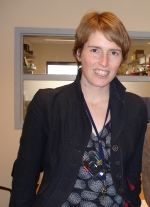 Marjolijn Jongmans Marjolijn Jongmans
Nijmegen, Netherlands
Talk: C04.5 Revertant somatic mosaicism in Dyskeratosis Congenita by mitotic recombination.
Session: C04 Unusual Mutation & DNA Repair Mechanisms
Date: May 29, 13.15 hrs Date and city of birth
13-12-1977, Roosendaal, the Netherlands
What is your current position?
Clinical geneticist i.t. and PhD student
Why did you choose a career in genetics?
As a medical student I attended a surgery of a child with a cleft lip. I realized that I was much more intrigued by the information in her file about the syndrome she had and how her clinical geneticist came to this diagnosis, than by the surgery. At that moment I knew that I wanted to work in clinical genetics. What do you really like about the research you are presenting?
Now that we are in the era of whole genome sequencing it seems like we will understand the mechanism behind most genetic syndromes very soon. It is important to be aware, that many conditions are caused by mosaic mutations and that we will miss those if we exclusively focus on studying DNA derived from blood cells. The finding of somatic mosaicism due to reversion in Dyskeratosis Congenita is a nice example.
What is your ultimate goal in life?
to celebrate each and every day of it.
|
| | | |
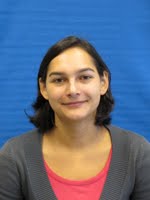 Rachel Kalf Rachel Kalf
Rotterdam, Netherlands
Talk: C14.5 Risk predictions from direct-to-consumer personal genome testing: What do consumers really learn about common disease risk?
Session: C14 Genetic Counselling, Education and Public Policy
Date: May 31, 11.00 hrs Date and city of birth
8 February 1983, Nieuw Nickerie, Suriname
What is your current position?
PhD student, department of Epidemiology, Erasmus University Medical Center, Rotterdam, the Netherlands
Why did you choose a career in genetics?
Research is one of my biggest passions, especially when it contributes to improve public health and clinical practice. Each day, new discoveries are made in genetics. I am very enthusiastic to assess the potential role of these new genetic findings for public health. What do you really like about the research you are presenting?
My project focuses on the prediction of multifactorial diseases using genetics. Investigating the impact of genetics on the prediction of these diseases and their translation to consumers is highly interesting. Furthermore I like to critically assess the predictive ability of genetic profiling in risk prediction and whether this could be useful for public health and clinical practice.
What is your ultimate goal in life?
Professionally I hope for a successful career and on a personal level I hope to enjoy every day of life.
| | Peter Krawitz
Berlin, Germany Talk: C05.4 Identity-By-Descent Filtering of Exome Sequence data for Disease-Gene Identification in Autosomal Recessive and X-Linked Disorders
Session: C05 Statistical Genetics & Large Scale Analysis
Date: May 29, 13.15 hrs |
| | | |
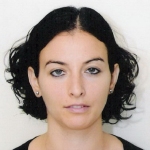 Anat Kreimer Anat Kreimer
New York, United States
Talk: C05.6 The influence of genetic variations on regulatory modules in the liver.
Session: C05 Statistical Genetics & Large Scale Analysis
Date: May 29, 13.15 hrs Date and city of birth
July 2nd 1981, Rehovot, Israel.
What is your current position?
PhD candidate at Columbia University, USA
Why did you choose a career in genetics?
Genetics explains the variation and similarity between members of a single species as well as the evolution and the phylogenetic relationships among organisms. Genetics research can be applied to understand how mutations affect different biological mechanisms and is used to advance the study of diseases along with personalize medicine. The sequencing of the human genome and the improvement in sequencing techniques in recent years have produced large amounts of data that now need to be analyzed in sophisticated computational methods. The diversity, challenge and applicability of this filed have driven me to choose a career in Genetics. What do you really like about the research you are presenting?
The thing I find most interesting in the research I am presenting at ESHG 2011 is the logical behavior of biological processes. Previous studies show that modularity of gene regulatory networks is a major organizing principle of biological systems. A module is the fundamental unit of a biological network which consists of a set of elements (e.g. genes) working jointly to fulfill a distinct function. Our premise is that the modular organization of gene regulation can be used to pinpoint eSNPs that affect multiple genes. Therefore, we developed a method that focuses on a group of transcripts (a module) that are associated with a single genetic variant.
What is your ultimate goal in life?
It is my hope that I will be able to contribute to my current inspiring academic environment with my sincere motivation. Following my doctoral studies I want to pursue post-doctoral studies leading to a career in research. My ultimate goal in life is to use my research in order to advance treatment of human diseases.
| | 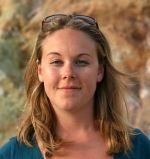 Audrey Letourneau Audrey Letourneau
Geneva, Switzerland
Talk: PL2.3 mRNA-Seq analysis of monozygotic twins discordant for Trisomy 21 reveals large chromosomal domains of gene expression dysregulation
Session: PL2 What's new?
Date: May 28, 18.30 hrs Date and city of birth
6th April 1985, Le Mans, France.
What is your current position?
Graduate student at University of Geneva Medical School, Switzerland
Why did you choose a career in genetics?
I think it is fascinating to try to understand why people are so similar and different at the same time and how small variations in our genome can lead to major phenotypic differences. What do you really like about the research you are presenting?
I like the challenge of testing new hypotheses to improve the understanding of the molecular bases of Down syndrome.
What is your ultimate goal in life?
To enjoy every single day and keep smiling!
|
| | | |
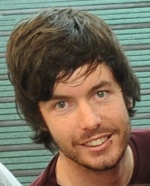 Mark McCormack Mark McCormack
Dublin, Ireland
Talk: PL2.6 HLA-A*3101 and Carbamazepine-Induced Hypersensitivity Reactions in Europeans
Session: PL2 What's new?
Date: May 28, 18.30 hrs Date and city of birth
2nd October 1986, Dublin, Ireland
What is your current position?
PhD student
Why did you choose a career in genetics?
Genetics is at the forefront of science and medicinal research. Screening for disease, prevention of adverse events and understanding disease-gene relationships are too fascinating to resist. What do you really like about the research you are presenting?
I love that my research has a direct bench to bedside application and will hopefully go on to inform and guide the care of epilepsy patients, a subject I relate to personally.
What is your ultimate goal in life?
I would ideally love to travel the world through a career in research and to teach classes of future scientists!
| | 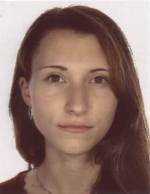 Sandra Mercier Sandra Mercier
Rennes, France
Talk: C02.2 Advances in phenotype-genotype correlations in Holoprosencephaly: about a European series of 645 probands.
Session: C02 Clinical genetics and Dysmorphology I
Date: May 29, 13.15 hrs Date and city of birth
Oct 5, 1978, Chambray-lès-Tours, France.
What is your current position?
PhD student in the team “genetics of pathologies related to development” at the Institute of Genetics and Development of Rennes, at the University of Rennes1, CNRS, France. I am also a MD (Clinical Genetics) of Rennes University Hospital
Why did you choose a career in genetics?
I was really interested in genetics since the beginning of my medical studies. I chose this speciality of great interest in terms of physiopathological mechanisms, psychological management of patients and promising research. What do you really like about the research you are presenting?
To have the great opportunity to bring results from the bench to the bedside in a translational program.
What is your ultimate goal in life?
I wish I would contribute to a better understanding of genetic diseases and a better looking after of patients and their families. I keep hoping of a great revolution in genetic diseases therapies for years to come that will give hopefulness to patients. |
| | | |
Anne-Christine Merveille
Liège, Belgium Talk: C11.6 CCDC39 is required for assembly of inner dynein arms and the dynein regulatory complex and for normal ciliary motility in humans and dogs
Session: C11 Centrosomal and Ciliary Defects
Date: May 30, 13.15 hrs | | 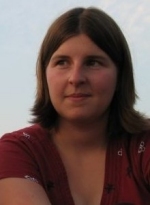 Sofie Metsu Sofie Metsu
Antwerp, Belgium
Talk: C15.4 A novel dynamic mutation in AFF3 associated with developmental delay
Session: C15 Intellectual Disability
Date: May 31, 11.00 hrs Date and city of birth
09-05-1985, Mortsel, Belgium.
What is your current position?
I am a PhD student in biomedical sciences and molecular genetics in the research group for cognitive genetics at the centre for medical genetics in Antwerp.
Why did you choose a career in genetics?
Even as a child I was fascinated by the how and why of various biological phenomena. It soon became evident that I wanted to be a scientist/researcher and so I followed a higher education in Bio-Engineering: Cell and Gene Biotechnology. I have chosen a career in genetics because this area of science, where the very basis of life is studied, is constantly subjected to change and improvement and new and exciting discoveries are made daily. Moreover a career in genetics offers the opportunity to meet other scientists and to work in many different setting, ranging from gene studies over functional analysis in animal models to clinical trials with actual patients. What do you really like about the research you are presenting?
What I most like about this particular research is that, after many years of difficult searching, we finally were able to confirm our hypothesis and unravel the molecular basis of FRA2A. In this way we were able to characterize a ninth folate sensitive fragile site. We thus contributed to the research of rare fragile sites and their involvement in intellectual disability, a project in which relatively little news was reported over the last few years, because only a few research groups are involved in this particular field of genetics.
What is your ultimate goal in life?
Both private and in my working life, I want to keep learning all kinds of new things and undergo new experiences that feed my curiosity every day. Furthermore I want to enthusiastically engage myself in various projects that I find to be worthwhile and a positive contribution to society. But I guess my ultimate goal is to live a happy, fulfilling life with the people that are close to me.
|
| | | |
Orianne Philippe
Paris, France Talk: C15.3 Mutations in genes encoding adaptor protein complex 4 (AP-4) subunits cause a clinically recognizable autosomal recessive syndrome.
Session: C15 Intellectual Disability
Date: May 31, 11.00 hrs | | 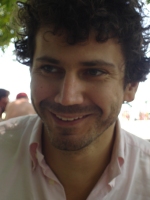 Tommaso Pippucci Tommaso Pippucci
Bologna, Italy
Talk: C17.3 Mutations in the 5' UTR of ANKRD26, the Ankirin Repeat Domain 26 Gene, cause an Autosomal-Dominant form of inherited Thrombocytopenia, THC2
Session: C17 Molecular Basics of Genetic Diseases
Date: May 31, 11.00 hrs Date and city of birth
May 28 1977.
What is your current position?
I am specializing in Medical Genetics.
Why did you choose a career in genetics?
I was really curious about genetics. What do you really like about the research you are presenting?
Linkage of THC2 to this 10p locus was known since 1999. I like that we finally identified the causative mutations, and overturned previous findings which had ascribed THC2 to mutations in different genes.
What is your ultimate goal in life?
To be able to entertain a thought without accepting it, quoting Aristoteles. |
| | | |
Cathryn Poulton
Rotterdam, Netherlands Talk: C02.3 Microcephaly with simplified gyration, West syndrome and infantile diabetes linked to inappropriate apoptosis of neural progenitors
Session: C02 Clinical genetics and Dysmorphology I
Date: May 29, 13.15 hrs Date and city of birth
Yeovil, UK 19th June 1979.
What is your current position?
PhD student in clinical genetics department, Erasmus MC. I am also training in paediatric neurology in the UK.
Why did you choose a career in genetics?
It is the ideal specialty to combine basic science research that has a direct impact on patient care. What do you really like about the research you are presenting?
The field of genetics of cortical malformations is an exciting and expanding area. Being able to (in a small way) help to unravel the secrets and intricacies of brain development is very exciting!
What is your ultimate goal in life?
To continue to combine research and clinical work in the field of paediatric neurology. | | Hugo Prazeres
Porto, Portugal Talk: C01.4 Chromosomal, epigenetic and microRna-mediated inactivation of LRP1B, a modulator of the extracellular environment of thyroid cancer cells
Session: C01 Cancer Genetics
Date: May 29, 13.15 hrs |
| | | |
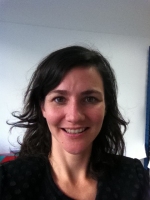 Caroline Rooryck Caroline Rooryck
Bordeaux, France
Talk: C03.4 Mutations in lectin complement pathway genes COLEC11 and MASP1 cause 3MC syndrome
Session: C03 Skeletal and Multisystem Disorders
Date: May 29, 13.15 hrs Date and city of birth
09/02/1976, Bordeaux FRANCE.
What is your current position?
MD PhD, Department of medical genetics, Universitary hospital Bordeaux (FRANCE).
Why did you choose a career in genetics?
I like the fact that this medical field combines diagnosis and research. What do you really like about the research you are presenting?
I started the project and was able to finish it (until publication).
What is your ultimate goal in life?
To participate to the discovery of new treatments in genetic diseases. | | 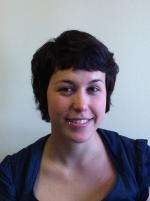 Nuria Segui Garcia Nuria Segui Garcia
Hospitalet de LLobregat (Barcelona), Spain
Talk: C01.3 The role of germline allele-specific expression of TGFBR1 in colorectal cancer predisposition
Session: C01 Cancer Genetics
Date: May 29, 13.15 hrs Date and city of birth
November 30th 1984, Las Palmas de Gran Canaria, Spain.
What is your current position?
I am PhD student at the Hereditary Cancer Program of the Translational Research Laboratory in the Catalan Institute of Oncology, Spain.
Why did you choose a career in genetics?
Since little I have always been fascinated by the functioning of living beings. I find incredibly complicated and unbelievable how Nature is capable of coordinate such a number of processes simultaneously. The network of connections is such that understanding it seems nearly impossible. I see genetics as the origin, the “instruction book” that explains how to develop that entire network. And specially, I find it astonishing how starting from something as simple as four elementary units, the nucleotides, Nature can develop something as complex as life. What do you really like about the research you are presenting?
With the project I am presenting it becomes evident the fact that science does not just advance because of positive results, negative results are equally necessary to go further. This is implicit in the basic scientific method, but sometimes we tend to forget it. Our work proves the necessity of perform validation studies in independent series to confirm the positive results.
What is your ultimate goal in life?
Happiness, of course, and if possible be able to live doing what I like. |
| | | |
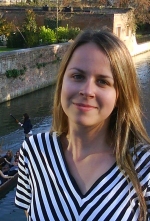 Jovana Serbanovic-Canic Jovana Serbanovic-Canic
Cambridge, United Kingdom
Talk: C16.6 Functional validation of GWAS loci for platelet traits in Danio rerio reveals new regulators of haematopoiesis
Session: C16 Genomic Applications
Date: May 31, 11.00 hrs Date and city of birth
10/08/1982, Belgrade, Serbia.
What is your current position?
Marie Curie PhD Fellow, Department of Haematology, University of Cambridge, Cambridge, UK
Why did you choose a career in genetics?
It brings together my love for biology and medicine. Trying to understand what makes us the way we are is an amazing and challenging journey. What do you really like about the research you are presenting?
I find the potentials of using zebrafish as a model system very exciting! It is fascinating how much a seemingly distant vertebrate species like zebrafish can tell us about genetic mechanisms behind human diseases.
What is your ultimate goal in life?
To keep my enthusiasm for research and optimism in life - and the rest will come. | | 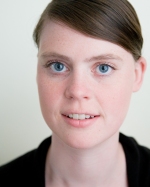 Margje Sinnema Margje Sinnema
Maastricht, Netherlands
Talk: C02.4 Ageing in Prader-Willi syndrome: Twelve persons over the age of 50 years
Session: C02 Clinical genetics and Dysmorphology I
Date: May 29, 13.15 hrs Date and city of birth
23-10-1981 Utrecht.
What is your current position?
Trainee in Clinical Genetics, Maastricht University Medical Centre, The Netherlands.
Why did you choose a career in genetics?
Clinical genetics encompasses a wide range of conditions, and it is one of the specialties that provides for both adults and children. One of the things that sets clinical genetics apart from most other specialties is the amount of time we are able to spend with our patients. We can really listen to the patients' concerns and take our time explaining the complex issues and risks entailed. I am fascinated by rare diseases and genetic syndromes. Finally, genetics will be at the center of scientific advancement for the 21st century. What do you really like about the research you are presenting?
In the presentation I will describe a first cohort of people with Prader-Willi syndrome over the age of 50 years. As more people with PWS attain older age, it is important to note that excess functional impairment, morbidity and even mortality may result from the consequences of early age onset conditions, through their long-term progression or their interactions with older age onset conditions. The increase of elderly requires corresponding increase in training and preparation of physicians and other health care professionals to meet the need of the adults with PWS. The results are also helpful for discussion with an support of family members.
What is your ultimate goal in life?
To love and be loved in return. To enjoy the little things in life and make a significant difference in life of other people. To have a job that I am good at and that I love to do that matches my talents.
|
| | | |
Thomas Sparso
Copenhagen, Denmark Talk: C10.6 Genetic association study of SNPs discovered from low coverage exome sequencing of 1000 phenotypically characterized Danish individuals
Session: C10 Complex Disease Genetics
Date: May 30, 13.15 hrs | | 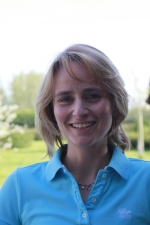 Sofie Symoens Sofie Symoens
Ghent, Belgium
Talk: C14.6 Clinical, biochemical and molecular overview of the Ehlers-Danlos Syndrome, vascular type: the Ghent experience
Session: C14 Genetic Counselling, Education and Public Policy
Date: May 31, 11.00 hrs Date and city of birth
29/07/1978 Ghent.
What is your current position?
I am currently a PhD student at the Center for Medical Genetics Ghent.
Why did you choose a career in genetics?
I have always been interested in genetics of human diseases. When I got the opportunity to work at the Center for Medical Genetics Ghent(CMGG), it was an ideal situation for me: combining pure research work with the phenotypic spectrum and understanding of human inheritable diseases. The combination of these two areas is of great importance and interest for me. Since for most of the connective tissue diseases we investigate at the CMGG, until now, no real cure is available for the patients, I feel this research is of great importance because by doing this we try to understand the disease phenotype and try to contribute to the unraveling of the pathogenetic mechanism. What do you really like about the research you are presenting?
In the work I am presenting at the ESHG 2011, I am giving an overview of the work that has been performed for one of the inherited syndromes (Ehlers-Danlos syndrome, vascular type) investigated at the CMGG. It comprises an overview of the molecular, biochemical and clinical data of a large subset of patients with proven vascular EDS (patients with a COL3A1 mutation) and also of patients referred to the CMGG for excluding a possible diagnosis of vascular EDS. With this work, we tried to develop new revised diagnostic criteria in order to help in the correct diagnosis of vascular EDS. Additionaly, we tried to make a distinction between patients with a COL3A1 mutation and patients without a COL3A1 mutation. Moreover, the diagnosis of vascular EDS in (small) children is sometimes difficult. Therefore, we tried to develop diagnostic criteria with special emphasis to (small) children. I feel this kind of research is important because vascular EDS is a devastating disease with a high mortality rate. As such, special attention needs to be drawn to this subtype of EDS and the comprehension of its etiopathogenesis is of great value. Furthermore, with this kind of research we further characterized the vascular EDS clinical spectrum.
What is your ultimate goal in life?
I hope that by doing this research, we can find a cure or, at least, a way to help these patients and prolonge their life expectancy.
In my research, I am also focussing on type V collagen, which is linked to the classic form of EDS. In this latter syndrome, the genetic cause of the disease remains unknown in a certain proportion of patients. I hope that my research can help in the understanding of the disease, by means of finding other responsible genes involved in this syndrome. As such, we could offer these patients further genetic counseling. Additionaly, I hope that I can motivate people for doing research in the genetics area as this is a very fascinating field! |
| | | |
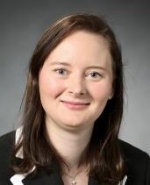 Henna Tyynismaa Henna Tyynismaa
Helsinki, Finland
Talk: C12.5 Genetic cause for infantile mitochondrial cardiomyopathy identified by exome sequencing
Session: C12 Neuro and Sensory Diseases
Date: May 30, 13.15 hrs Date and city of birth
September 17th 1976, Kurikka, Finland
What is your current position?
Postdoctoral Fellow, Research Program of Molecular Neurology, University of Helsinki, Finland Why did you choose a career in genetics?
During my school years, I was influenced by the Finnish press frequently covering the success stories of the late Leena Peltonen-Palotie in human genetics. The realization that I too could have a career in genetics was the decisive moment and this path has felt right ever since.
What do you really like about the research you are presenting?
Mitochondrial disease genetics is fascinating because it involves a carefully orchestrated interplay of two genomes. The whole-exome sequencing technology offers new opportunities for the identification of nuclear-encoded mitochondrial disease genes. These findings will eventually lead to a better understanding of the mechanisms of mitochondrial dysfunction in a vast range of diseases.
What is your ultimate goal in life?
My professional principle is to constantly develop my career in a way that allows me to stay in Science until retirement. At the end I hope to be satisfied with my choices and see the advances in our society that I have contributed to.
| | Ingrid van de Laar
Rotterdam, Netherlands Talk: C09.5 Mutations in SMAD3 in the TGF-β pathway cause a new syndromic form of aortic aneurysms and dissections with early-onset osteoarthritis
Session: C09 Clinical genetics and Dysmorphology II
Date: May 30, 13.15 hrs |
| | | |
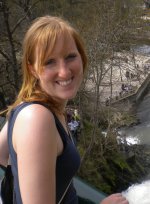 Christine van der Werf Christine van der Werf
Groningen, Netherlands
Talk: PL2.5 Identification of the gene underlying Congenital Short Bowel Syndrome, pointing to its major role in intestinal development
Session: PL2 What's new?
Date: May 28, 18.30 hrs Date and city of birth
14-4-1985, Agogo (Ghana)
What is your current position?
MD/PhD student
Why did you choose a career in genetics?
Because genetics plays an important role in all diseases. I am interested in how genetics play a role in human development and how genetic defects cause a disease phenotype.
What do you really like about the research you are presenting?
I think our research is very exciting. It is fun to find something really new and to find out how gene mutations lead to a specific phenotype. Human development is a beautiful wonder of which we still know just a tiny piece. What is your ultimate goal in life?
To be happy and to make other people happy. | | 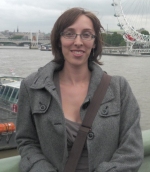 Hannah Verdin Hannah Verdin
Ghent, Belgium
Talk: C04.2 High-resolution breakpoint mapping of 10 regulatory and 32 FOXL2 encompassing deletions in BPES using targeted microarrays
Session: C04 Unusual Mutation & DNA Repair Mechanisms
Date: May 29, 13.15 hrs Date and city of birth
04/07/1986, Bruges, Belgium
What is your current position?
PhD student at the Center for Medical Genetics, Ghent University, Belgium
Why did you choose a career in genetics?
It really intrigued me that a 4-letter code provides all the information for the development of an organism and that a change of just one nucleotide can lead to a disease phenotype. Also, I think genetics is a fascinating field to work in because it's fast evolving with innovative technologies emerging constantly and new discoveries being made every day.
What do you really like about the research you are presenting?
In general, I like the fact that with every causal defect we identify in a patient, we can provide the patient with an answer. More specific, it is really fascinating to search and discover the underlying deletions mechanism and therefore better understand how and why these deletions occurred. What is your ultimate goal in life?
Happiness in every possible aspect of life. |
| | | |
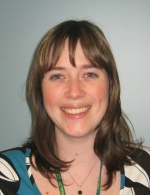 Sarah Vergult Sarah Vergult
Ghent, Belgium
Talk: C13.6 Nasal speech and hypothyroidism are common hallmarks of 12q15 microdeletions.
Session: C13 Molecular Cytogenetics
Date: May 31, 11.00 hrs Date and city of birth
June 9, 1985 in Antwerp, Belgium
What is your current position?
I'm a PhD student at the Center for Medical Genetics in Ghent, Belgium
Why did you choose a career in genetics?
I've always been intrigued by the human genome and when I was offered the opportunity to do a PhD in this field, I didn't hesitate and went for it. Genetics is an exciting field to work in and I hope I can contribute to it.
What do you really like about the research you are presenting?
The possibility of discovering new microdeletion syndromes and/or new genes involved in intellectual disability and congenital anomalies. What is your ultimate goal in life?
To make the most of it and find the optimal combination between work, friends and family. | | 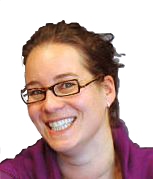 Lisenka Vissers Lisenka Vissers
Nijmegen, Netherlands
Talk: C08.1 A de novo paradigm for mental retardation
Session: C08 NGS for Gene Identification and Genetic Testing
Date: May 30, 13.15 hrs Date and city of birth
27 August 1980, Vught, The Netherlands
What is your current position?
Postdoctoral fellow at the Department of Human Genetics, Radboud University Nijmegen Medical Centre, Nijmegen, The Netherlands
Why did you choose a career in genetics?
I fell in love with human genetics after an inspiring lecture at university. Ever since, I have pursued a career in genetics, specifically putting together the pieces of the DNA puzzle in patients with ID, hoping to find their genetic causes of disease.
What do you really like about the research you are presenting?
The enormous potential to improve diagnostics for patients with intellectual disability! What is your ultimate goal in life?
Live life to its fullest. |
| | | |
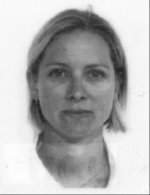 Aoife Waters Aoife Waters
London, United Kingdom
Talk: C11.3 Whole Exome Sequencing Identifies The Genetic Cause Of A New Ciliopathy Syndrome
Session: C11 Centrosomal and Ciliary Defects
Date: May 30, 13.15 hrs Date and city of birth
05.01.1975, Cork
What is your current position?
MRC UK Research Training Fellow
Why did you choose a career in genetics?
It became increasingly apparent to me while working as a clinical trainee, that currently, the therapeutics of several diseases are limited by the paucity of knowledge of the underlying molecular mechanisms which govern both monogenic disorders and complex disease traits. As a result, I decided to undertake a PhD in Molecular Genetics two years ago with the objective of learning how genetic mutations can impair critical protein functions which ultimately lead to disease phenotypes. What do you really like about the research you are presenting?
The current work is a great example of a classical Mendelian disorder arising from a compound heterozygous loss of function mutation in a critical gene which ultimately leads to a severe and lethal developmental phenotype. Importantly, it highlights the critical role for diagnostic whole exome sequencing in the pathogenesis of novel and rare phenotypes. Furthermore, the functional aspect of this work is opening up an entire new research domain for cell cycle regulators in the field of ciliogenesis. What is your ultimate goal in life?
Following a basic introduction into the field of molecular genetics, it is my aspiration to learn more about the molecular genetics of human genomic rearrangements and their role in disease manifestation. Importantly, however, will be the application of how to adapt this knowledge in the context of diagnostics and therapeutics. | | 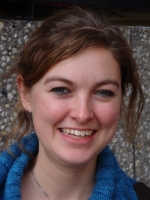 Sara Willems Sara Willems
Rotterdam, Netherlands
Talk: C10.4 Accumulation of common lipid variants influences atherosclerosis, and incident cardiovascular disease
Session: C10 Complex Disease Genetics
Date: May 30, 13.15 hrs Date and city of birth
July 24 1984, Leiden
What is your current position?
PhD student at the Erasmus Medical Center, department of epidemiology, genetic epidemiology group Why did you choose a career in genetics?
It is the most interesting field to work in! There is so much to discover and, despite the fact that applications in the medical field don't appear as quick and easy as some might have expected after the completion of the human genome project, I still think it is very promising in improving medical knowledge and, ultimately, medical care..
What do you really like about the research you are presenting?
It shows that an accumulation of common genetic variants with small effects, can significantly impact sub-clinical and clinical outcomes. I think this is promising. With our increasing knowledge of genetic variation, pre-clinical genetic screening tools might improve the prediction and prevention of disease.
What is your ultimate goal in life?
Apart obviously from winning the Nobel Prize, my goal is to add as much usefull knowledge as possible to the medical field! |
| | | |
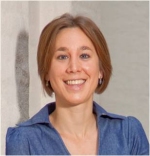 Marjolein Willemsen Marjolein Willemsen
Nijmegen, Netherlands
Talk: C15.6 Haploinsufficiency of microRNA-137 is associated with intellectual disability in patients with overlapping deletions in 1p21.3.
Session: C15 Intellectual Disability
Date: May 31, 11.00 hrs Date and city of birth
February 28, 1981, Nijmegen
What is your current position?
Currently I am working as a PhD student on the project ”˜'Diagnostics and diagnostic related research in intellectual disability of unknown etiology'', at the department of Human genetics in Nijmegen, The Netherlands
Why did you choose a career in genetics?
First of all, I like the opportunity to combine and link genetic research with the care for patients and their families. I also enjoy the collaboration with several different disciplines both in the laboratory and in the clinics. Furthermore it is great to be part of the fast moving field of genetics.
What do you really like about the research you are presenting?
What I like most in the research I am presenting is that I can directly link the clinical study of these patients to the molecular and functional studies in the laboratory. I like the collaboration with experts in microRNA studies which has led to the identification of a microRNA that is involved in the intellectual disability phenotype that we observed in the patients. It is nice to have the opportunity to contribute to the elucidation of genetic causes of intellectual disability. This is not only important for science, but also enables us to give important answers to patients and their families. What is your ultimate goal in life?
To live a happy, meaningful and successful life and make the most of the opportunities that I get. | | |

 Lia Abbasi Moheb
Lia Abbasi Moheb  Heleen Arts
Heleen Arts  Louise Bicknell
Louise Bicknell  Paul Brady
Paul Brady  George Busby
George Busby  Jillian Casey
Jillian Casey  Johanna Dahlqvist
Johanna Dahlqvist  Salima El Chehadeh-Djebbar
Salima El Chehadeh-Djebbar  Benjamin Fairfax
Benjamin Fairfax  Dominic Furniss
Dominic Furniss  Alexander Hoischen
Alexander Hoischen  Rachel Kalf
Rachel Kalf  Anat Kreimer
Anat Kreimer  Audrey Letourneau
Audrey Letourneau  Mark McCormack
Mark McCormack  Sandra Mercier
Sandra Mercier  Sofie Metsu
Sofie Metsu  Tommaso Pippucci
Tommaso Pippucci  Nuria Segui Garcia
Nuria Segui Garcia Jovana Serbanovic-Canic
Jovana Serbanovic-Canic  Margje Sinnema
Margje Sinnema  Sarah Vergult
Sarah Vergult  Lisenka Vissers
Lisenka Vissers  Aoife Waters
Aoife Waters  Marjolein Willemsen
Marjolein Willemsen